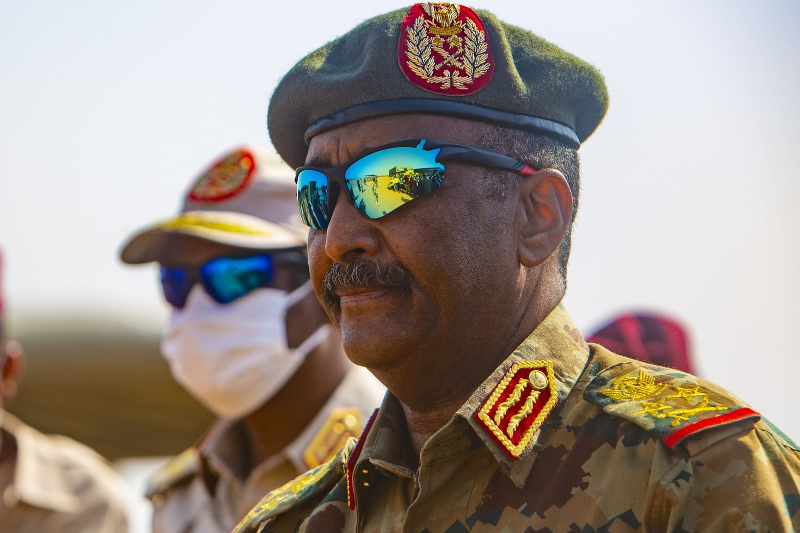
senior sudanese officer othman jaafar defects to kenyan rsf amid rising tensions in sudan
Senior Sudanese Armed Forces (SAF) officer Colonel Othman Jaafar has defected to Kenya’s Rapid Support Forces (RSF), acting in an unparalleled and till unheard-of manner. This surprising change of events has caused waves in Sudan and the East African area, highlighting the mounting discontent inside the SAF and casting grave doubts on the general consequences on regional stability.
Apart from exposing internal conflicts inside Sudan’s military system, Jaafar’s defection implies the likely spread of the conflict outside of Sudanese boundaries. His support of Kenya’s RSF introduces even more possibly disruptive elements to an already delicate environment.
Colonel Othman Jaafar: Insider turns Outsider
Rising strongly in the SAF, Colonel Othman Jaafar was commended for his strategic foresight and expertise. For Sudan’s continuous power struggle, his leaving represents a turning moment. Jaafar explained in a widely shared video his reasons for leaving the SAF—charging it of ethnic discrimination, ideological rigidity, and relentless loyalty to Islamist organizations.
“In the grip of the Islamist movement,” Jaafar said of the SAF, a muted allusion to its ties to Sudan’s long-standing political Islam, which dominated the country’s government under the presidency of ousted Omar al-Bashir. His assertions align with mounting disappointment in Sudan, where many see political Islam as a failed system aggravating national issues.
Defecting to Kenya’s RSF, Jaafar seems to be imparting a more broad lesson on the need of transformation—not only in terms of administrative and ideological orientation but also inside Sudan’s military. His actions clearly challenge the leadership of the SAF as well as its apparent sympathy with out-of-date and contentious ideas.
RSF: a fresh regional Kenyan player?
The paramilitary force underwent a major change when Jaafar transferred from RSF to Kenya. Kenya’s RSF historically has been a localized security force focused on internal stability and border threat counteraction. But Jaafar’s arrival signals likely changes in its capacity and objectives.
Experienced Sudanese military officers enlisted to its ranks could help Kenya’s RSF to engage more actively in dynamics of regional security. Knowing SAF operations, policies, and shortcomings by Jaafar will probably help the RSF to be more operational and provide it a strategic advantage in any upcoming discussions or disputes.
This evolution begs problems regarding Kenya’s involvement in the Sudanese situation as well. Kenya has long positioned itself as a mediator in regional disputes, but Jaafar’s leaving marks more active participation in Sudan’s problems. With maybe far-reaching effects for both countries, this would force Kenya more into the internal conflict of Sudan.
Under Pressure: Base SAF exhibits flaws
The desertion of Jaafar highlights the rising divisions among the SAF, which has fought steadily starting from the commencement of the conflict with Sudan’s own RSF. Among these difficulties include claims of war crimes, claims of ethnic targeting, and a purported incapacity to meet the needs of an evolving political environment.
Jaafar’s allegations of ethnic prejudice inside the SAF have bearing on deeply ingrained problems afflicting Sudan’s military for decades. These complaints capture the general discontent among SAF members transcending Jaafar. Many SAF members clearly find its ideological rigidity and links to Islamist groups frustrating since they view the leadership as hindrances to unity and success.
Should these problems not be fixed, the SAF runs the danger of suffering more defections, therefore compromising its operational performance and command structure. The defection of Jaafar might inspire more demoralized officials to follow suit, therefore aggravating the internal turmoil inside the SAF and compromising its ability for control.
Keep Reading
Local Reactions: An Emerging Conflict
Since Jaafar turned from Kenya to RSF, regional stability suffered severely. From Sudan, it creates a risk of conflict extending across neighboring nations possibly involving Kenya and other East African nations into the fight.
Kenya’s choice to welcome Jaafar into the RSF also reveals its fresh viewpoint on regional security. Although Kenya has past mediation of disputes, its involvement in Sudan’s affairs could complicate efforts for a peaceful settlement.
Observers alert of the dangers of regionalism have also brought the defection under international focus. Should Sudan’s war intensify, it might affect the whole East African region, impact trade, cause population migration, and sour relations among surrounding nations.
The Greater View: Changing Ideas and Future Directions
More widespread political and intellectual changes in Sudan than just military strategies show in Jaafar’s defection. His denial of the SAF’s Islamist ties exposes a mounting discontent with political Islam, which many Sudanese see as a failed experiment that has hampered development and heightened tensions.
The way Jaafar interacts with Kenya’s RSF begs issues about what the RSF stands for and where it should be positioned going forward for Sudan. Though the RSF has not stated a clear agenda for Sudan beyond fighting the SAF, the SAF has been singled out for links to Islamist groups. Lack of ideological coherence could reduce its long-term appeal and efficiency.
For Sudan, Kenya, and the wider area as well as for Jaafar, defection presents both possibilities and challenges. It emphasizes for Sudan the pressing need of reforms inside her political and military establishments. Restoring stability and unity largely depends on tackling problems of governance, ideological rigidity, and ethnic prejudice.
For Kenya and its RSF, Jaafar’s defection offers a chance for a major role in regional security. Still, this approach also has dangers since it draws Kenya closer to Sudan’s war and results in international condemnation.
The defection of Jaafar at last emphasizes how closely Sudan’s plight relates to more general regional dynamics. Resolving these problems will call for concerted efforts among regional and worldwide players to support stability and prevent the spread of the conflict even deeper.
Still unresolved is whether Jaafar’s defection would inspire reform or worsen the divide and disruption in East Africa and Sudan. The way the important parties handle this turning moment will define the solution.









